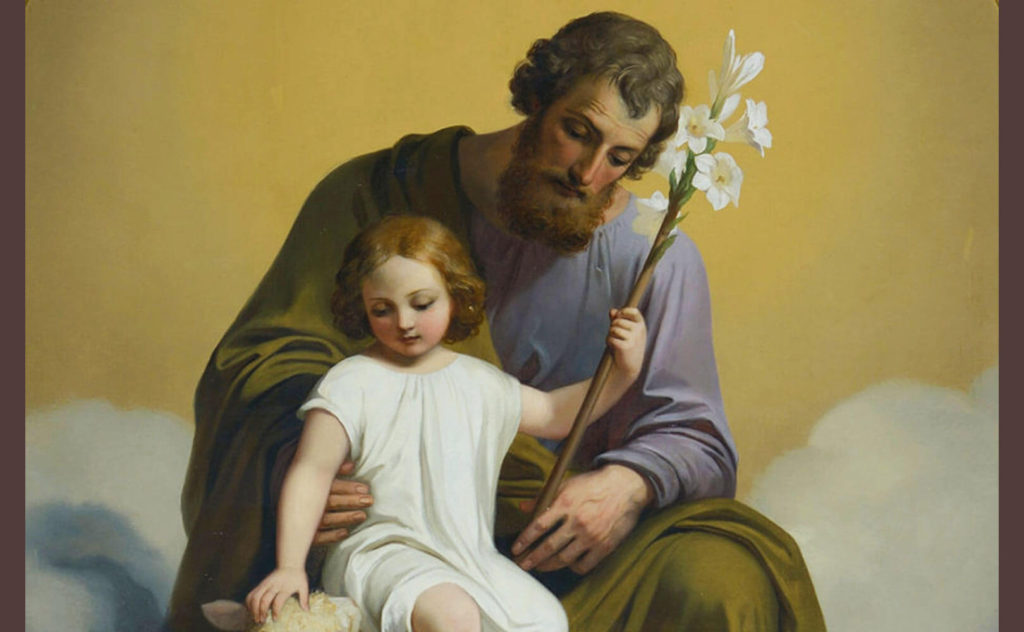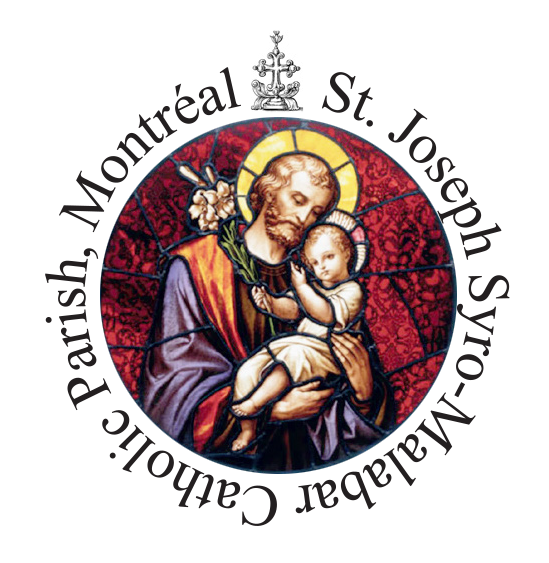Who was St. Joseph?
“Joseph, son of David, do not fear to take Mary your wife, for that which is conceived in her is of the Holy Spirit; she will bear a son, and you shall call his name Jesus, for he will save his people from their sins.” –Matthew 1:20
St. Joseph’s part in the Nativity story is a familiar feature of every Christmas pageant. But for many centuries the Church paid him scant attention. This is especially obvious compared with the the extraordinary concern for the role of Mary in the economy of salvation. So eager was the Church to emphasize Jesus’ divine paternity that Joseph, the surrogate father, was consigned to the shadowlands. It was only in the sixteenth century that any official encouragement was extended to his supporters. Around that time St. Joseph, in a somewhat romanticized image of the Holy Family, began to figure more widely in popular preaching as the ideal “provider and protector.” In 1870 Pius IX declared him Patron of the Universal Church.
Besides his feast day on March 19, an additional feast, for St. Joseph the Worker, was assigned by Pope Pius XII on May 1. Aside from his virtues as a father or a man of faith, it is also worthwhile to note Joseph’s status as a poor working man – a detail not without significance in the gospel. Although he is linked to the house of King David, Joseph remains a carpenter from a Galilean town so miniscule that it serves as the butt of jokes. His wife gives birth in a stable. Warned in a dream of King Herod’s murderous intentions, Joseph must lead his family into exile in Egypt. And then, having returned the family to the town of Nazareth, Joseph effectively disappears from the story. By receding before the inauguration of Jesus’ public ministry he does not interfere with Jesus’ privileged relationship with God.
By taking into his home his wife “found with child through the Holy Spirit,” Joseph gave Jesus his legitimacy in David’s lineage (Matthew 1:16-21), he saved the child from Herod who wanted to kill him, and lastly he brought him back from Egypt and settled in Galilee with the child and his mother (Matthew 2:19-23). In Matthew’s gospel, Joseph appears as the direct and personal representative of the Father at the side of his Son come to earth, the guardian whom the Father chose because he could totally trust him and with whom he remains in close touch to show him what he must do.
Excerpted from All Saints by Robert Ellsberg, New York: Crossroad Publishing 1997, and Days of the Lord, edited by Robert Gantory and Romain Swaeles, Collegeville: The Liturgical Press, 1997.

